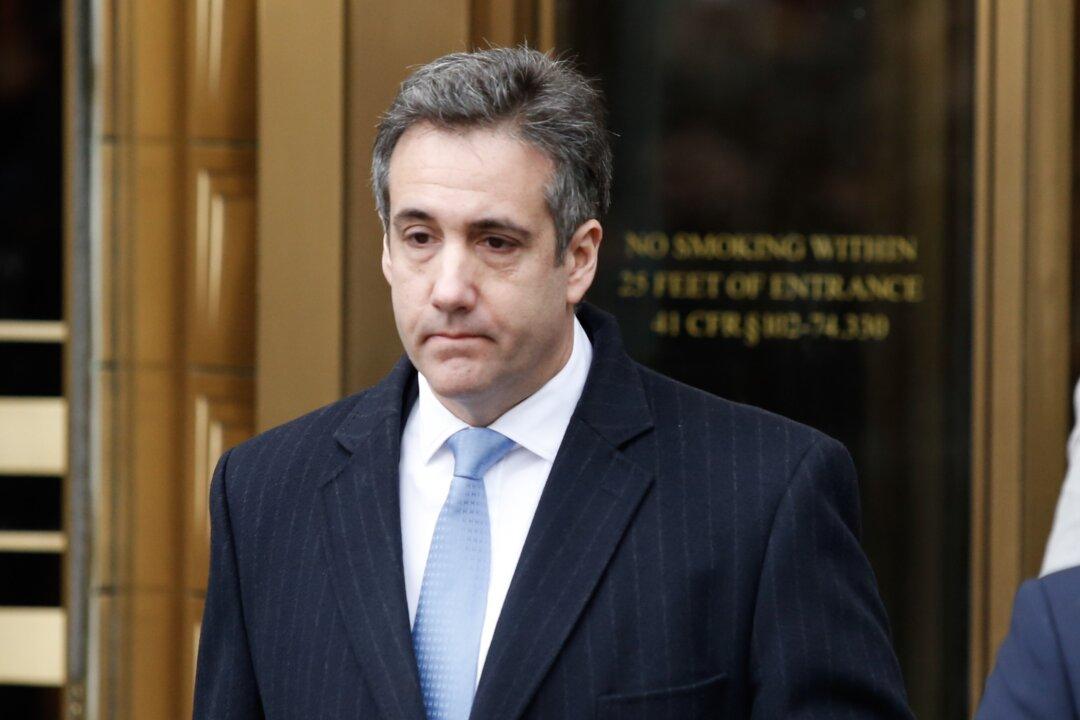President Donald Trump’s former personal attorney Michael Cohen has filed a lawsuit against Attorney General William Barr over claims that he was sent back to prison in retaliation for writing a book that criticized the president.
The lawsuit (pdf) filed on Monday seeks to challenge the decision to place Cohen back into custody at Federal Correctional Institution in Otisville, New York, and asks the court to release him back to home confinement.




